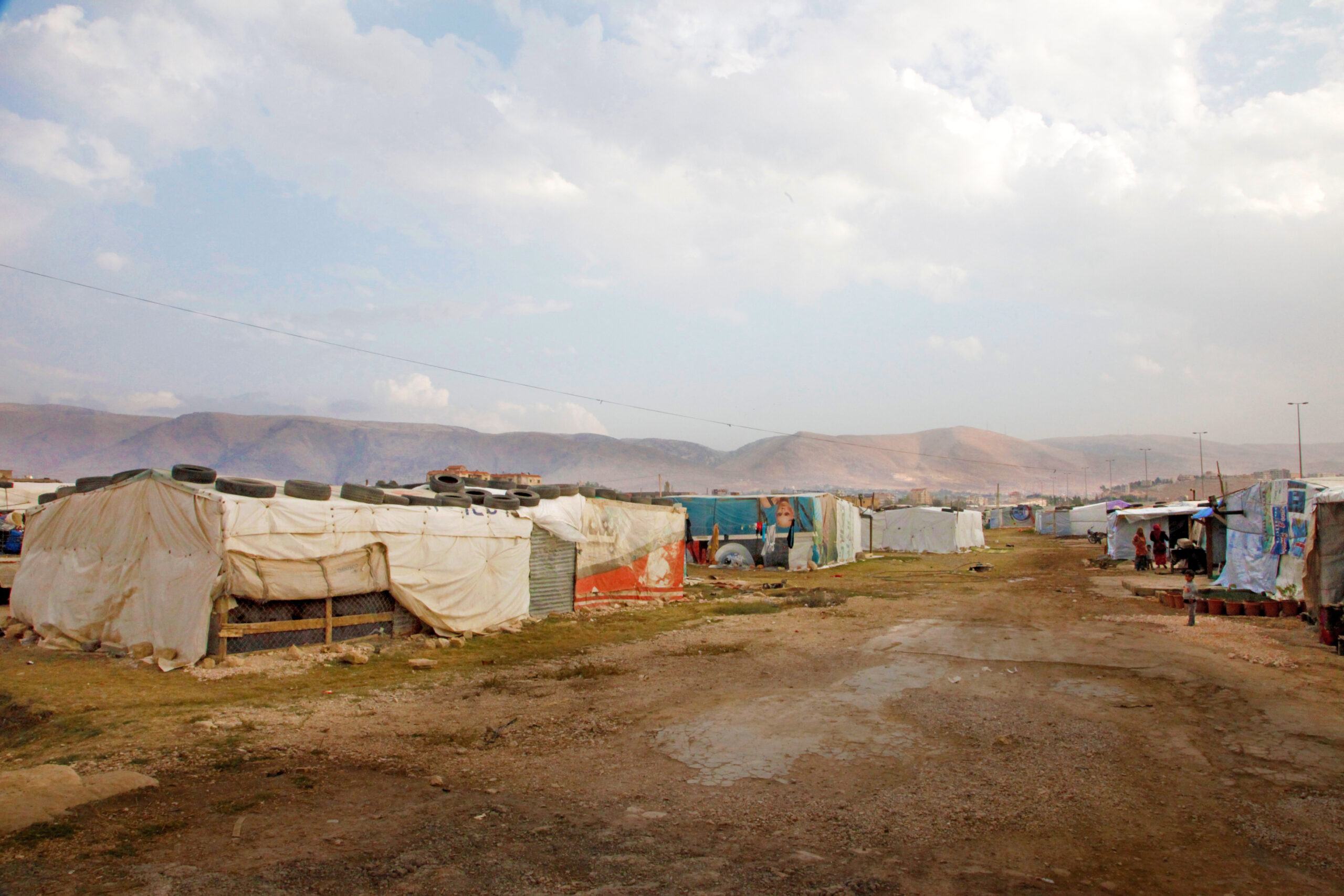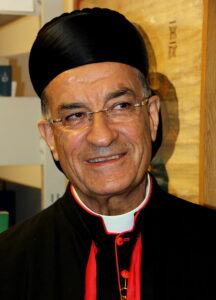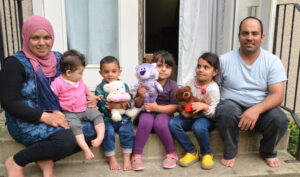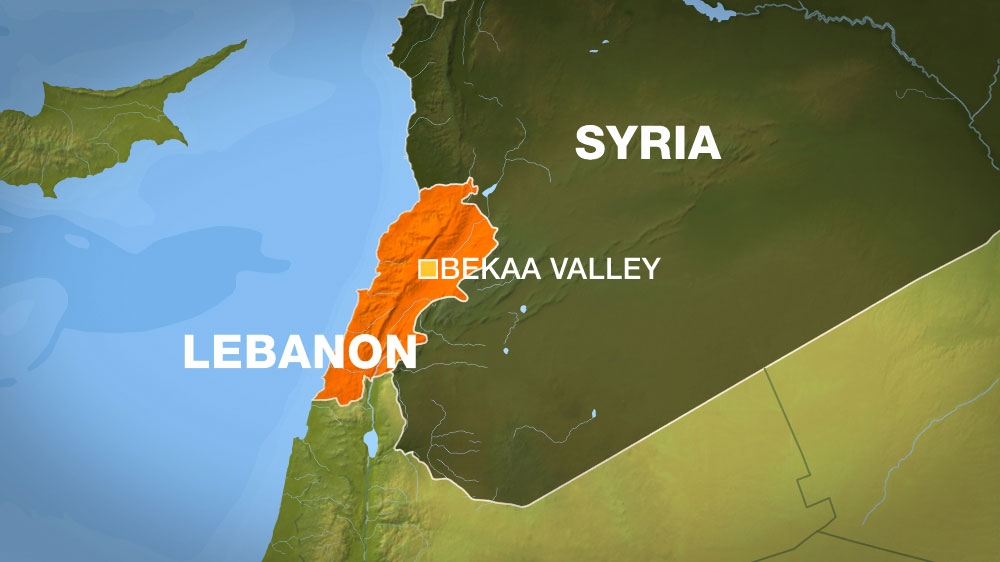In our efforts to build a secular society in which faith has little or no place in public life, we may be missing some valuable lessons from an unlikely place, says Archbishop Richard Smith.
The Archbishop of Edmonton recently returned from a weeklong tour of Lebanon, where he got a firsthand look at the complex challenges facing the Middle East country. Also on the tour were Archbishop Christian Lépine of Montreal; Bishop Lionel Gendron of Saint-Jean-Longueuil, Que., the new president of the Canadian Conference of Bishops; and three lay professionals who have been working with refugees in Canada.
The invitation to Lebanon was an initiative of the Maronite Catholic community, as a gesture of thanks to the bishops of Canada who serve Maronites in their dioceses, and particularly for their work with Maronite parishes to bring refugees from the conflicts in Iraq and Syria to Canada. Alberta has two of the 17 Maronite parishes across Canada, including Our Lady of Good Help in Edmonton.
Lebanon is considered a birthplace of democracy, interfaith dialogue and Arab-Israeli relations. Since the end of its bloody civil war in 1990, the country has worked to promote itself as a symbol of tolerance and co-operation. St. Pope John Paul II once said that “Lebanon is more than a country; Lebanon is a message and an example for the East as well as for the West,” and Archbishop Smith said that message was evident throughout the bishops’ visit.

A country with a usual population of some 4 million, Lebanon is now hosting more than 1.5 million documented Syrian refugees. That’s in addition to about 450,000 Palestinian refugees who have fled to Lebanon over the years.
“So the strain on resources, on the patience of the people, on the infrastructure is just enormous,” said Smith. “It’s as if we in Canada, with our population of 36 million, if we had 18 million refugees come into our country, how in heaven would we ever manage that?”
Given the enormity of the challenges, how the Lebanese people manage is nothing short of remarkable. For one thing, they have opened their border to people who were their bitter enemies during the 16-year civil war.
The Canadians met some refugees in the Beqaa Valley, once the site of heavy shelling and bombing attacks by the Syrian army.
“It’s in these same areas that the refugees are now being sheltered,” Smith said. “That’s only a generation or so ago, so you know that some of these refugees that are coming in are related to or perhaps are the very same people who had been involved in the conflict at that time and killing Lebanese people. And now the Lebanese have opened their border to welcome them in in their time of need.”
Interfaith co-operation is actually written into the Lebanese constitution, which requires that the country have a Shi’ite Muslim speaker of parliament, a Maronite president, and a Sunni prime minister. It was even on display in the elite military escort – whose members just a few weeks earlier had helped drive ISIS out of Lebanon – that ensured security for the visiting Canadians.
“The soldiers were both Christian and Muslim, and they admitted that quite openly,” the Archbishop said. “You have people there, and have throughout the centuries of the country’s existence, of very different faith traditions. Sometimes those faith traditions have led them into conflict, but now they’re trying their very best to live together in solidarity in their community. And we saw that firsthand in the military – Muslim, Christian, avowedly so, but very much fraternal, on a human basis.
“The other message that we saw throughout the country is that the Muslims, the Jews, the Christians, the various religions, they don’t hide their faith. They have symbols of their faith all over the place. And members of government represent all these faiths. They are visibly who they are – they don’t hide it – and yet at the same time they’re working together for the common good of the country.
“In the West, we’ve developed this opposite idea, that if we’re going to get along we have to hide our faith, and there’s this pressure to keep the faith private. Well, faith cannot be kept private. Faith of its nature demands expression in word and in sign. That’s what’s been happening in Lebanon.

“So there is a wonderful message there, that faiths can indeed work together. It’s not easy, you have to work at it, but what is uniting them all in that particular corner of the world, is a united love for their country and a desire to make this work.”
But everyone recognizes the refugee situation in Lebanon is not sustainable. Cardinal Bechara Boutros al-Rahi, Patriarch of the Maronite Catholic Church, has called for the Syrian refugees to return home once it becomes safe to do so. And like other Catholic bishops in the region, he worries about the decimation of the Christian presence throughout the Middle East.

“The bishops will say on the one hand, if someone really does need to flee to find safety, of course we help them,” Smith said. “But at the same time, we need to be working internationally at creating the conditions where people feel safe to return home, whether that be to Syria or Iraq, so that the Christians are not totally obliterated from the land – Christians who were there shortly after Jesus himself, which means Christians who have been there long before Islam, for example, even existed.
“Lebanon at one point was 60 per cent Christian; now it’s only 30 per cent, and the numbers continue to diminish as people seek to leave the country for a better way of living and safer conditions elsewhere. So to be right in the middle of that, to hear from the bishops, from the politicians, from military personnel, you begin to see just how complex it is.”
“So I found it moving, that in spite of all of those pressures, massive pressures, with a complexity that just staggers the mind, there has been that openness to welcome in those who are truly desperate.”

